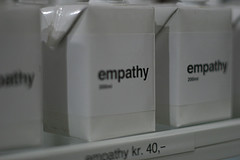... and where do you learn those things that you need to learn?
Good luck with this list from Stephen Downes. He gives us plenty to ponder.
... and where do you learn those things that you need to learn? Good luck with this list from Stephen Downes. He gives us plenty to ponder.
0 Comments
Needless to say, Race to Nowhere captured my attention. Katie really never had letter grades before. We did home school last year and I pulled her from the mess that was fourth grade where they weren't using letter grades yet. Enter Middle School where they have something called the Parent Portal and you can see how you are doing day-by-day. Test by test. Let the addiction begin.
I had been slightly worried she was so obsessed with her grades, but I also shared her excitement as she was able to study more and get better grades. For the last four weeks, she's been getting 100 on everything which, bytheway, they addictively call an A+ - which is simply non-sense, it's an A. But this adds a kick to the high doesn't it?! So I confronted Katie about her addiction ..... Read the full post and then think about grades in your world! Do you have a student who is addicted to their grades? Do you have a child who is addicted to their grades? Do you have a teacher who is addicted to their grades? Interesting point of view and topic for some thought! Where do you feel grades fit into a person's learning?  I have been reading and rereading this post by Danah Boyd at the same time that I am working with students on creating a presentation for the school about "Bullying" and the components of bullying. It has raised many questions for me about where we are going with our school's work on this and what other things might we be thinking about as we work with our school community on these issues.
I understand that Danah's subjects might be older kids but from my perspective some of our population is at the level that she illustrates. I felt that much of what she has to say has relevance with our middle school students. I like her focus on the importance of empathy. The ability to imagine oneself as another person is a sophisticated process and it is this that might make sense to begin to work on if possible. We, both students and adults, could use some practice at trying to understand and be able to see the other side of an issue. At the very least we need to learn or practice approaching an issue from many different perspectives. To be able to to this is not easy and maybe not developmentally appropriate for all but for the rest of us we could us some practice. As Danah also points out what children and adults subject themselves to with their consumption of media has such a detrimental effect on trying to learn empathy. How can one be expected to seriously think about the other side of a position, or how another person might feel with the present day's media portral of relationships. And we wonder why our society is not the one that we remember. The following excerpt and specifically the final sentence are where we might make a difference on this matter. Create and establish the environment for the change we want to see. "Combating bullying is not going to be easy, but it’s definitely not going to happen if we don’t dive deep in the mess that underpins it and surrounds it. Lectures by uncool old people like me aren’t going to make teens who are engaged in dramas think twice about what they’re doing. And, for that matter, using the term “bullying” is also not going to help at all either. We need interventions that focus on building empathy, identifying escalation, and techniques for stopping the cycles of abuse. We need to create environments where young people don’t get validated for negative attention and where they don’t see relationship drama as part of normal adult life." What is your reaction to Danah's post ? cc photo: pierre phaneuf Don't know about you but my math class could use a "make over" and Dan Meyer certainly gives me plenty to think about and to work with in this presentation. I have followed Dan for a few years and have enjoyed his work from a distance but with this presentation his work seems more accessible to me. There are many things that I can get hung up on in my teaching but Dan keeps this focused and very real for me as I look to "make over" my math experience. Dan has been a leader for me to watch as he has made much of his experiences available online. His use of visual pictures and video is outstanding and allow me to see possibilities for my teaching experience. Here is a link to the page of his presentation and lots of other related links. He also has a great TED Talk about this idea as well.  I have just finished reading this piece about snacks and eating habits. It certainly raised a few questions for me. Do we need snack time? Do I ply my kids with snacks on a regular basis to avoid other issues? Why do we need to eat all the time? Can we have three meals a day and call it good? Are more meals a day better than the three meal model?
I would like to think that we could do with less eating times at school but only if the food that is provided is of sufficient levels. We all need food in the morning. And it needs to be better than a bowl of processed cereal to get someone to a lunch time meal. That is what I think but I fear that we are so far down a path of unhealthy eating habits that it will be a hugh societal change that is needed rather than a simple school change. Which of course is the reason for the story in the first place. So there, I have come full circle, not a big circle, nor earth shattering but a circle nonetheless. So now you can take a spin with the snacks and leave your comments for me to ponder. I need to find something to eat before I head to bed! cc photo from morrissey Here is a intriguing animation of Graphic facilitation. The topic is not new but the visuals are! Enjoy I think that this was what we were trying to get going last year. Without communication between teachers, parents, and community members to help create a vision for education in our town, school reform is destined to fail. How will Appleton create a vision for our education?
Below is an interesting post from an excellent high school principal about education and the media's present marketing of the "issue". I am hoping to tune into a webinar this evening about this issue. If you have an interest here is a link to it. Link to Chris Lehmann's post from which the following is quoted. "I say as both an educator and a parent -- we need a great debate about education in this country. We should be asking ourselves -- what do we need our schools to be? What do we hope for our children? How are we going to modernize our schools so that they can change with the changing times? What do our children need from schools and how are we going to teach to meet those needs? We're not going to get there if we expect the politicians and the media to start these conversations. These conversations have to happen in cities and towns all over this country. Parents and children and educators need to take the time to come together and have these conversations. We need to understand that without a vision of what we want our schools to be, reform is destined to fail. So where do we go from here? What can we do? Write to MSNBC and demand that the next Education Nation segments focus on how we teach and learn and not on the charter vs. non-charter debate. MSNBC's address is: NBC News, 30 Rockefeller Plaza, New York, N.Y. 10112 Go to your local school board meetings and ask them how they are going to modernize the schools in your district. Ask them how they see the new tools that kids have at their disposal can -- and should -- change the way we teach and learn. Ask to sit on the committee that is drawing up the technology plan. Organize conversations in the schools in your neighborhood -- ask the principal to hold an education summit on a Saturday that brings together community members and educators and parents and students and asks the hard questions about what our schools can be and the steps necessary to get there. We deserve a great conversation about education in this country -- better than the one we're seeing now." Just came across this movie trailer about education. Might be of interest to some! Something that I found from last Feb and wanted to have a record of. We need to raise citizens who are wise, thoughtful, passionate and kind and from that foundation will come a citizenship who will be an asset to this planet. Below is an excerpt from Joe Bower's blog. It connects to some of the conversations that I have heard today about Reach for the Top and Standardization.
Do we have to go down this path of standardization? Are these things done with the best interests of the students in mind? He starts off with this quote from Sir Ken Robinson. "There is nothing wrong with having high standards, but who said that having high standards means everyone has to do the same thing. Having high standards and standardization are not the same." So if we don't have to standardize in an effort to provide high standards for our children's education, then why is there so much standardization? Alfie Kohn writes about cui bono in his book Punished by Rewards. Cui bono meaning: who benefits? Standardization rarely is in the best interest of student learning. Instead, standardization most benefits those who wish to collect data that can be analyzed and compared - allowing teachers, students and schools to be 'properly' ranked and sorted. It's about ranking rather than rating. I propose that we liberate our children's learning from their standardized prison cells. Personally, the best thing I ever did in order to liberate my students was to abolish grades. Without grades, I no longer felt like every student had to do the same assignment or same test. I didn't need 'data' that was quantifiable nor did I need to compare one student to another. |